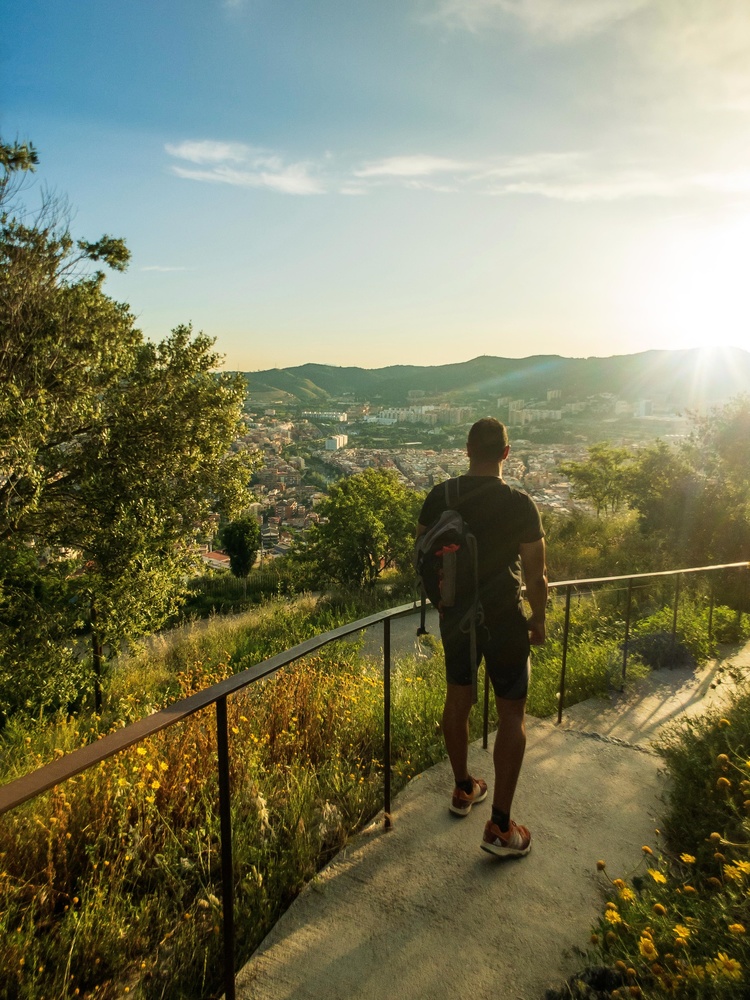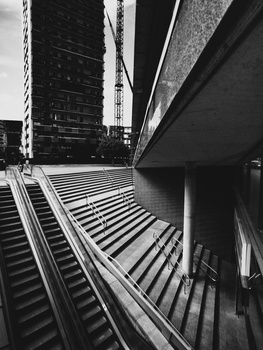There have been plenty of occasions where someone has asked me which camera they should buy up to a certain price point. My first question almost always is to ask them what smartphone they currently have. The reason for this is because smartphone cameras have come such a long way that they’re now viable tools for photography and video.
I’m pretty certain that many other professionals have recommended that beginners use their smartphones too and there are several reasons as to why this is brilliant advice. I should clarify that this is not aimed at people who are looking to operate as professionals, nor is this a sponsored or affiliated post in any way shape or form.
It’s Not the Camera
I imagine that almost every professional at some point in their career has told someone that it’s not the camera but it’s the photographer. This is especially true if you’re a beginner because in my experience, many who are just starting out as photographers or as videographers tend to focus on the gear more so than the actual craft. This is predominantly why saying it’s not the camera is a great way to get beginners to start thinking about the important aspects; like composition, lighting, use of colors, and storytelling. Of course, as you progress in your career and become more adept at your craft, the tools you use will start to become more important to your preferred workflow. For beginners however, that’s not necessarily the case and it tends to be more important to draw their focus to the subject as opposed to the gear. On that basis it doesn’t matter if someone who’s just starting out is shooting on an iPhone, a medium format camera, or a Red. Chances are the results they will be producing will be very similar regardless of the gear.

The most convenient camera to shoot with on a small plane.

Works great for cigars too.
It's Not the Settings

When you’re starting out in photography trying to figure out all of the settings can be a little overwhelming. Understanding how the exposure triangle works in any given scene can be a little tricky. Of course, these are settings that professionals and experienced photographers should know, however, if you’re just starting out, it’s really not that important.
The most important thing about photography and almost any artform is composition. A badly composed image is a bad image regardless of if the settings are correct. For this reason, starting out with an iPhone can be great way to develop the properly valuable skills.
The interface of the iPhone camera allows you to step away from the settings and focus on the content. Adjusting the exposure with an iPhone is extremely intuitive and easy to do. If a scene is too bright or too dark then one can adjust it with a simple tap on the screen. Developing skills related to good composition, lighting and use of colors are far more important than knowing what ISO you should select. What’s even better is the fact that if someone did want to understand camera settings then there are apps that allow you to shoot in manual.
My favorite photography app is ProCam which offers some brilliant options including full manual controls. For video, many people seem to recommend Filmic Pro although I don’t personally have any experience with this app. In any case the point is that with iPhone you can avoid being bogged down by settings and instead just go out and shoot.

Does it matter that this image was shot in auto?
Why iPhone and Not Any Other Phone?

Simply put, the current iPhone is the most well-rounded smartphone for photographers and videographers. In terms of photography the iPhone offers incredible image quality for a smartphone especially with features like "Deep Fusion." This individual feature produces images with a great deal of detail and low noise even in tougher lighting scenarios.
The other reason is that the iPhone for a number of years now has consistently offered the best video features. Even now, none of the other major manufacturers offer video features that are as good as the ones in iPhone. Features like being able to shoot at 4k 60 fps and Full-HD at 240 fps are not available in any phone from any of the other major smartphone manufacturers. These types of features aren’t even found in many top-end DSLR and mirrorless cameras which makes iPhone a fantastic choice. Due to this iPhone is a more well-rounded device for both video and photography.
The Best Camera
This is probably one of the biggest cliches within the photography industry, but, it’s still relevant and very true. The best camera is the one that’s with you. Your smartphone is almost always with you and it makes sense to make full use of it. In my experience there have been a good number of individuals who have wanted to get into the industry only to end up wasting money on cameras and lenses. They ended spending up a good deal of money on a new gear, only to find they hardly ever use them. This is a very common mistake that many beginners seem to make. It takes far more effort to pack a bag with cameras, lenses storage cards, and charged batteries and many times people just forget.
The other reason is that it's difficult to go out and shoot with equipment you don't fully understand. Most of your time will be spent trying to figure out how the gear works or trying to figure out your mistakes instead of actually shooting. The camera then becomes a hindrance and that saps away any passion you initially had. It would be prudent to build and develop your passion for photography before spending lots of money on a camera system you may not fully understand or appreciate.
iPhones now offer incredible options both for photography and videography. Not only that but in this small compact device you have three very useful focal lengths to shoot with and an interface that can be described as idiot proof. With these three focal lengths you can comfortably shoot many of the different genres within photography.
If you are building an interest in photography, then my advice would be to avoid spending lots of money on a new camera and simply use your phone.
I have comfortably shot architecture with just an iPhone and it performs extremely well in many situations.
The Best Device to Learn on

Smartphones like the iPhone are incredible devices to learn and develop new skills. This one device can take photos, edit images, and upload them onto all of the major platforms. You can learn how to edit your images while you edit your images all on one portable device. If you’re unsure of something or there’s something you’d like to learn then it’s so easy to open up the YouTube app and search for whatever you’re looking for. Smartphones are the only device that allow you to do everything related to photography up to a certain point. For a beginner, almost everything that’s required to learn and develop their photography skills are available within this one device.
Final Thoughts
Our industry has a very steep learning curve. Couple that with initial cost of equipment and it can be quite off putting for people looking to explore their talents. Based on that it makes more sense to just use the best device you probably already own. As many people have pointed out, devices like the iPhone have democratized our industry and this I think is a wonderful thing.










You are wrong.
I use the latest iphone 11 pro and have mostly ditched my SLR. Nota Bene: I am not a professional but love photography and for my purposes my current iphone is easier to use and mostly takes better photos than my SLR.
My only advice is look at getting a little Fuji like the X100t etc, phones are amazing (as my comments above state) but a compact mirrorless is awesome to carry around
As smartphones get smarter as cameras, especially the iPhones, they tend to AI all the user's mistakes away. Yes, it does help learn composition, but so does a piece of cardboard with a hole in it (old school). Phone users tend to be fooled by phone AI as they shoot in awful conditions and get usable shots only to be disappointed when they upgrade to a real camera. Without the depth of field control or understanding lighting their shots really show the skills of the AI guys rather than the user.
All true and all proof that the iphone is the best camera for beginners. :)
I totally agree. I have the iPhone 12 and it is amazing. You can quickly turn off the AI stuff and shoot like a pro. It shoots raw and it has 3 lenses. Plus, there are enough apps out there to let you carry a darkroom around with you for post processing.